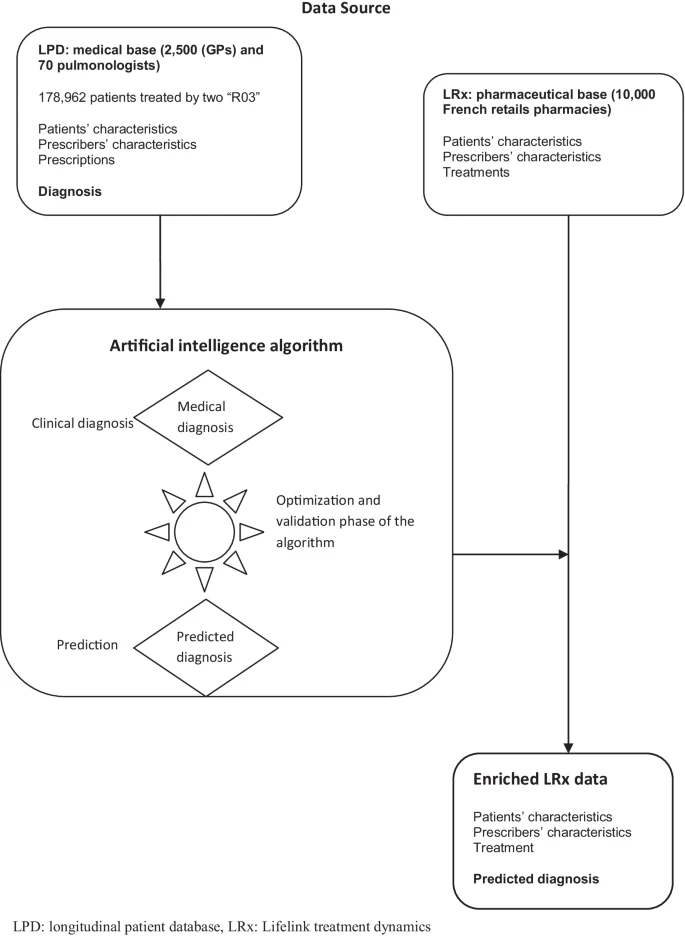Hassan Joumaa, Raphaël Sigogne, Milka Maravic, Lucas Perray, Arnaud Bourdin & Nicolas Roche
BMC Pulmonary Medicine volume 22, Article number: 357 (2022)
Abstract
Introduction
Discriminating asthma from chronic obstructive pulmonary disease (COPD) using medico-administrative databases is challenging but necessary for medico-economic analyses focusing on respiratory diseases. Artificial intelligence (AI) may improve dedicated algorithms.
Objectives
To assess performance of different AI-based approaches to distinguish asthmatics from COPD patients in medico-administrative databases where the clinical diagnosis is absent. An “Asthma COPD Overlap” category was defined to further test whether AI can detect complexity.
Methods

This study included 178,962 patients treated by two “R03” treatment prescriptions at least from January 2016 to December 2018 and managed by either a general practitioner and/or a pulmonologist participating in a permanent longitudinal observatory of prescription in ambulatory medicine (LPD). Clinical diagnoses are available in this database and were used as gold standards to develop diagnostic rules. Three types of AI approaches were explored using data restricted to demographics and treatment dispensations: multinomial regression, gradient boosting and recurrent neural networks (RNN). The best performing model (based on metric properties) was then applied to estimate the size of asthma and COPD populations based on a database (LRx) of treatment dispensations between July, 2018 and June, 2019.
Results
The best models were obtained with the boosting approach and RNN, with an overall accuracy of 68%. Performance metrics were better for asthma than COPD. Based on LRx data, the extrapolated numbers of patients treated for asthma and COPD in France were 3.7 and 1.2 million, respectively. Asthma patients were younger than COPD patients (mean, 49.9 vs. 72.1 years); COPD occurred mostly in men (68%) compared to asthma (33%).
Conclusion
AI can provide models with acceptable accuracy to distinguish between asthma, ACO and COPD in medico-administrative databases where the clinical diagnosis is absent. Deep learning and machine learning (RNN) had similar performances in this regard.
